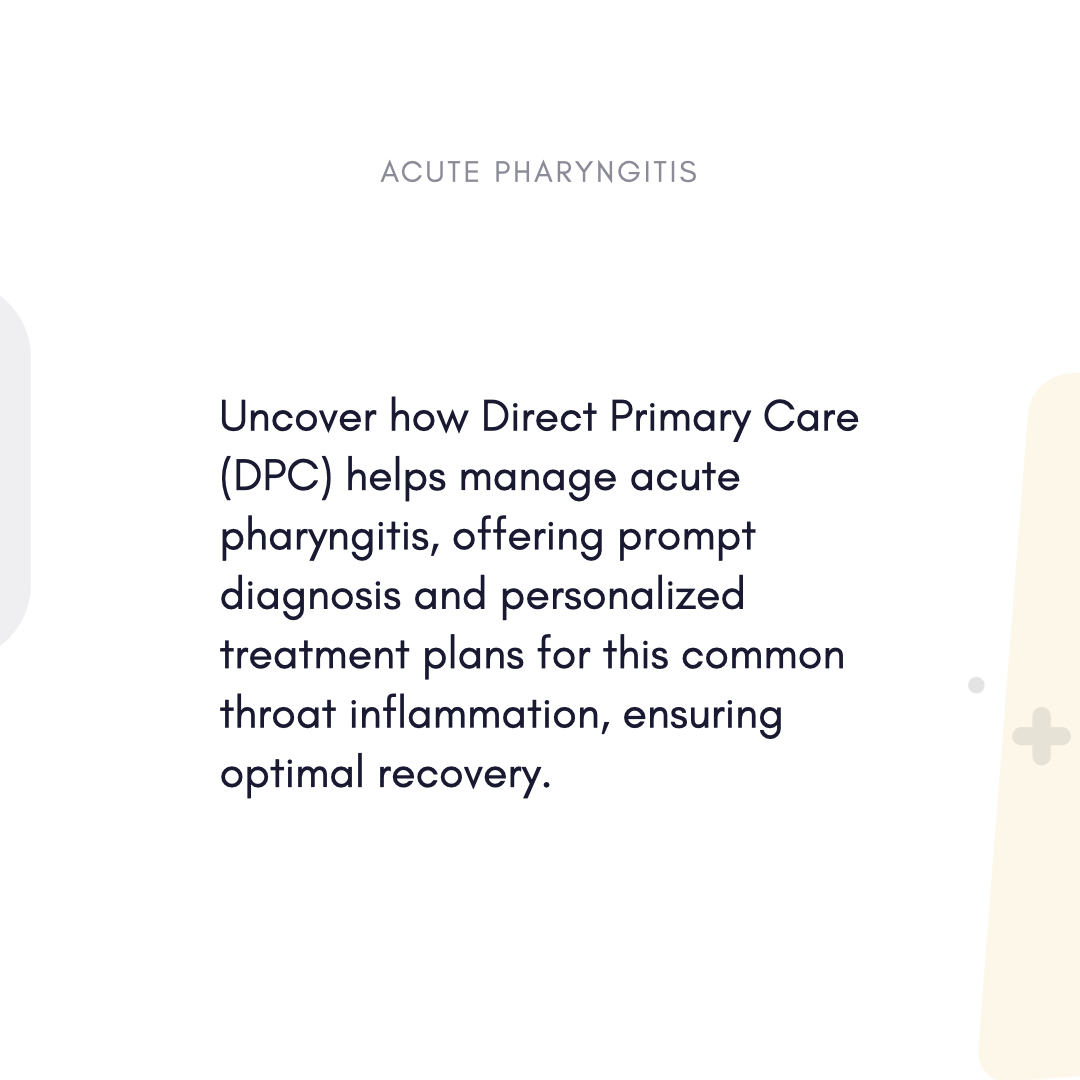



Acute pharyngitis, commonly known as sore throat, is a common condition characterized by inflammation of the pharynx, the area at the back of the throat. Acute pharyngitis can be caused by viruses like the common cold or flu, but can also be caused by bacteria like streptococcal pharyngitis. It is important to evaluate acute pharyngitis and treat it appropriately. As a patient-centered approach to healthcare, Direct Primary Care (DPC) can play a significant role in managing acute pharyngitis.

There are several symptoms associated with acute pharyngitis, including a sore throat, difficulty swallowing, fever, and swollen lymph nodes. In contrast to viral pharyngitis, bacterial pharyngitis, particularly streptococcal pharyngitis, may need antibiotics to prevent complications such as rheumatic fever or kidney inflammation.
Using a DPC model, patients have direct access to their primary care provider without the need for referrals. In acute pharyngitis, this accessibility is especially valuable because it allows for prompt diagnosis of the underlying cause of their symptoms.
An evaluation or specialized care may be needed in some cases of acute pharyngitis, even though most cases are viral and self-limiting. In order to ensure appropriate management of acute pharyngitis and its complications, DPC providers facilitate communication and collaboration with specialists.
Acute pharyngitis must be managed symptomatically in order to ensure patient comfort and well-being, regardless of the cause. In order to relieve discomfort and promote recovery, DPC providers offer comprehensive symptom management strategies, such as pain relief, hydration, and rest.
DPC providers take a personalized approach to treatment, tailoring management plans to each patient's individual circumstances and preferences. Treatment for acute pharyngitis varies depending on the underlying cause and severity of symptoms.
Antibiotic Prescription Practices: The use of antibiotics is essential in cases of bacterial pharyngitis, such as strep throat, to reduce the risk of complications and transmission. In order to minimize antibiotic resistance, DPC providers follow evidence-based antibiotic prescribing guidelines.
As part of patient education and counseling, DPC providers educate patients about acute pharyngitis, including its causes, treatment options, and prevention strategies. By empowering patients with knowledge, DPC helps them make informed decisions about their healthcare and promotes self-management of acute pharyngitis symptoms.

Individuals suffering from acute pharyngitis can benefit greatly from Direct Primary Care. Through prompt evaluation, comprehensive care coordination, personalized treatment plans, and patient education, DPC empowers patients to effectively manage their symptoms and promote recovery. Acute pharyngitis patients can receive the specialized attention and support they need to feel better and get back to normal by adopting this patient-centered approach to healthcare.
Previous Post